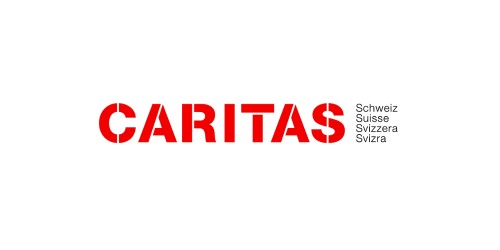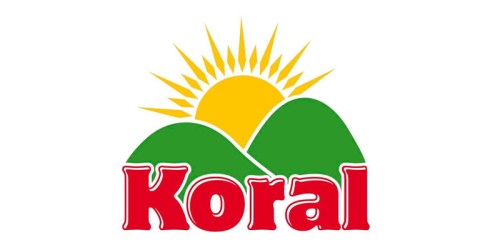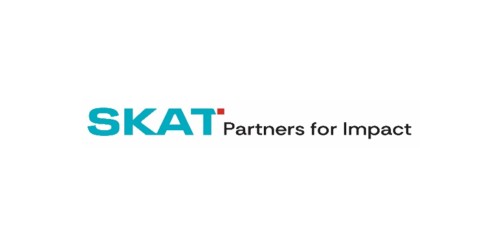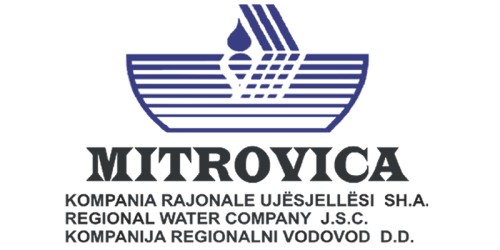
TERMS OF REFERENCE
Feasibility Study for the Adoption of Sustainable Production and Processing Practices, Climate-Smart Agriculture
in the frame of the programme Empowering Rural Economies in Agriculture (EREA), implemented by Caritas Switzerland in Kosovo, funded by the Austrian Development Cooperation (ADC)
- BACKGROUND
The Empowering Rural Economies in Agriculture (EREA) programme in Kosovo is designed to address the evolving role of agriculture in the country's economy and environment. Currently contributing 7% to the Gross Domestic Product (GDP), the sector employs a significant quarter of the workforce, particularly in rural areas where two-thirds of the population reside. Despite its importance, agricultural productivity levels lag behind regional and international benchmarks due to limited adoption of modern inputs and technologies, insufficient expertise in good
agricultural practices, restricted market integration, and challenges in accessing finance.
Recognizing the potential for growth and income generation, the EREA programme focuses on higher- value production and processing of Non-Wood Forest Products – Medical and Aromatic Plants (NWFPs- MAPs), Berries and Fruit and Vegetable Processing in a climate-smart manner. Recent years have seen expansion in these sectors, with increasing sales and increasing demand to quality of products. To ensure inclusive growth, the programme specifically targets the participation and benefit of women and members of marginalized communities, while emphasizing sustainability,
climate change and ecological regeneration.
Adhering to the Market System Development (MSD) approach, Caritas Switzerland (CACH) collaborates closely with three National Associations: Mjedra e Kosoves (MeK) for the berry and forest fruits sector, Association ORGANIKA for the Non-Wood Forest Products and Medicinal and Herbal Plants, and Association PePeKo for fruits and vegetable processing. Additional partners, such as the Non- Governmental Organization Initiative for Agricultural Development of Kosovo (IADK), the Research Institute of Organic Agriculture (FiBL), EcoKos Women (EKW) and the
Agricultural Development Foundation of Kosovo(AgroDev), including the Ministry of Agriculture, Forestry, and Rural Development (MAFRD), contribute to achieving the programme's objectives.
EREA programme places a strong emphasis on environmental sustainability, which is reflected in Programme Outcome 3, dedicated to promoting environmentally sustainable agricultural and business practices, including climate-smart agriculture. The programme is committed to ensuring that climate-smart agricultural
practices are accessible to everyone, irrespective of gender or social background.
In conclusion, the EREA Programme intends to establish an important link between climate change, agriculture, and both environmental and social sustainability. It is crucial to integrate gender and social inclusion within this framework to guarantee that the benefits of sustainable practices are distributed equitably among all stakeholders, with special attention to those most vulnerable to the effects of climate change.
2. OBJECTIVE / PURPOSE
- Evaluate the feasibility of integrating climate-smart practices and technologies into existing agricultural systems. This will involve identifying gaps and opportunities to enhance readiness for the latest practices and technologies, developing targeted interventions like training, capacity development and financial support, and formulating policies and advocacy strategies to foster a supportive environment.
- Assess the potential impact of sustainable production and climate-smart agriculture on food security, income and environmental conservation.
- Identify barriers and opportunities for adoption.
- Provide recommendations for policy and practice.
The study should provide crucial data and insights to effectively tailor approaches in line with needs of Market Actors ready to innovate, thereby informing and guiding the project's future strategic direction in promoting climate-smart practices and technologies.
The initiative's success is anticipated to be a benchmark for future interventions, showcasing the practicality and advantages of adopting Sustainable Consumption and Production practices (SCPs)1 in the market system. Ultimately, the project aspires not only to implement these practices but also to establish a replicable and sustainable model, encouraging more agribusinesses (incl. farmers) to adopt and expand these practices in the future.
3. SCOPE OF WORK/METHODOLOGY
Working closely with the EREA programme team, the consulting company/experts will:
- Assess Current Capacities in Kosovo: Evaluate the existing infrastructure, technical expertise, and institutional frameworks nationally and in the target area to determine the current readiness for adopting agriculture and climate-smart technologies in selected project agricultural sectors.
- Identify Challenges:
- Mitigation: On the one hand, conduct a comprehensive analysis of the impact of selected value chains on the climate, considering factors such as energy consumption, transport, water use and pesticide use.
- Adaptation: Evaluate – on the other hand - the vulnerabilities of selected value chains to climate change and associated risks, including crop failure, soil degradation and reduced yields.
- Identify and assess the existing policy framework that facilitates and necessitates further development for climate change adaptation and mitigation measures. Additionally, analyze the current legislative framework and the human resources available within public institutions.
- Identification of Areas for Adaptation and Mitigation:
1 UNEP’s definition of SCP will be applied;this includes practices that minimize the use of natural resources and toxic materialsas well as the emissions of waste and pollutants over the life cycle of a service or product. Sustainable food consumption is therefore not part of this study.
- Identify areas within the selected value chains where climate-smart technologies or techniques can help mitigate the effect on the climate.
- Identify opportunities for climate change adaptation and mitigation in the selected value chains.
- Identify and assess potential barriers and challenges that could impede the long-term sustanability of implemented climate change adaptation and mitigation measures.
- Develop Targeted Interventions:
- Design targeted interventions tailored to address the challenges of climate change: climate- smart technologies and techniques/practices.
- Develop strategies to enhance resilience, improve resource efficiency and mitigate the negative impacts of climate change on agricultural production of the selected value chains.
- Develop a Pilot Project Plan:
- Develop a comprehensive plan for five small-scale pilot projects within selected value chains aimed at mitigating or adapting to climate change.
- Outline objectives, activities, timelines, and expected outcomes of the pilot project.
- Identify key stakeholders, partners, and resources needed for successful implementation of the pilot project.
- Develop a Comprehensive Set of Recommendations for the EREA project (cross-cutting):
- on climate change challenges within selected value chains.
- Recommendations should be made to be replicable by a larger number of beneficiaries, including agribusinesses and farmers.
- Emphasize practical and actionable strategies for agricultural actors in implementing climate-smart practices and technologies, considering local context and resource constraints.
- Capacity Building and Knowledge Transfer:
- Develop strategies for capacity building and knowledge transfer to empower stakeholders in adopting and implementing climate-smart technologies and practices.
- Identify training needs, extension services, and knowledge dissemination channels to ensure effective uptake and utilization of recommended interventions.
- Monitoring and Evaluation Framework:
- Suggest a monitoring and evaluation framework to track progress, measure impact, and assess the effectiveness of implemented interventions.
- Define key performance indicators and data collection methods to evaluate the success ofclimate change adaptation and mitigation efforts within selected value chains.
4. DELIVERABLES
Through this engagement, the following deliverables should be produced to ensure the successful completion of
each stage:
- Initial Workplan and Inception Report:
- Presentation of the initial work plan outlining the timeline and key milestones for the consultancy project.
- Overview of the inception report detailing the approach, methodology, and objectives of the consultancy.
- Discussion of any adjustments made to the work plan based on initial findings and stakeholder feedback.
- Summary of Analysis:
- Concise summary of the findings from the literature review, stakeholder engagement and field assessments.
- Highlighting key insights, gaps, challenges, and opportunities identified during the research process.
- Presentation of preliminary recommendations based on the data analysis.
- Tailored Interventions and Pilot Project Plan:
- Detailed list of tailored interventions aimed at addressing challenges of climate change through the adoption of climate-smart technologies and techniques.
- Comprehensive plan for a small-scale pilot project within selected value chains aimed at mitigating or adapting to climate change, including objectives, activities, timelines, including possible cost categories and expected outcomes.
- Comprehensive technical recommendations and interventions tailored for small-scale projects and farms to effectively utilize climate-smart initiatives in agriculture. These recommendations should address the adaptation of farming practices to changing climatic conditions while considering the unique circumstances of each project and farm.
- Provide an analysis of the positive and negative factors influencing the introduction and implementation of these interventions, offering insights into potential challenges and opportunities for successful adoption.
- Strategies for Capacity Building:
Strategy for carrying out capacity building based on the identified training needs in the selected value chains, and knowledge dissemination channels to ensure effective uptake and utilization of recommended interventions..
- Monitoring and Evaluation Framework:
- Defined key performance indicators and means for data collection and processing (sources of verification).
- Final Report:
- Presentation of the finalized report incorporating addressed comments and revisions from the inception report.
- Executive summary highlighting key findings, recommendations, and the proposed interventions for climate change adaption and mitigation.
- Appendices containing supporting data, interview transcripts, and additional documentation.
- Discussion of next steps for dissemination and implementation of the report's recommendations.
5. TIMELINE
The activity will commence once the contract has been signed by both parties and shall be completed by 30.06.2024. For this activity, the consultancy amount shall not exceed30`000.00 €.
6. KEY QUALIFICATIONS
The contractor (consultants) or consulting team, are expected to have the following skills and key qualifications:
- Master’s Degree or Higher in relevant fields such as in climate change, agriculture, environmental science, or other relevant fields related to climate change and climate-smart initiatives. Specialized education or certification in climate change mitigation or adaptation, sustainable agriculture or environmental management.
- Demonstrated knowledge, expertise and experience of a minimum of 5 years in climate-smart agriculture, sustainable production practices, technologies and their application in agriculture or related fields.
- Experience in Capacity Assessment, conducting comprehensive assessments of agriculture, infrastructure and technical expertise, particularly in the context of environmental technology.
- The consultant(s) should demonstrate a successful track record in implementing a minimum of two comparable assignments, aligning closely with the nature and scope of this planned assignment.
- Skills in Gap Analysis and Opportunity Identification: Ability to identify resource deficiencies and
opportunities for improvement in the adoption of climate-smart technologies. - Experience in developing targeted interventions, including training programs, capacity-building initiatives, and financial support strategies.
- Ability to innovate and think creatively to address complex challenges in adopting agriculture and climate-smart technologies.
- Experience and knowledge of the Market Systems Development (MSD) approach and Economic Analysis or a related field would be appropriate.
- Strong communication and collaboration skills, essential for working closely with the EREA program team and stakeholders. (For international experts, experience working in Kosovo will be an advantage).
- Fluency in English and Albanian or Serb languages.
7. PROPOSAL SUBMISSION PROCESS
Interested consultants/companies are requested to submit an electronic copy of their proposal by the 22nd March, 2024 with the subject line: REF: “Feasibility Study for the Adoption of Sustainable Production, Consumption Practices,
and Climate- Smart Agriculture” to Ms. Behare Mlinaku,Monitoring and Evaluation Manager – [email protected] with [email protected] and [email protected] in the CC line.
Applicants must submit:
- CVs of all individuals included in the consultancy team (highlighting all experiences in the subject of agriculture climate change). Please note to have all CVs formatted uniformly.
- Submission of three reference letters relating to specific completed projects, with at least two addressing challenges related to climate change in agriculture.
- Proposal narrative which includes the consultants’/companies’ suitability for the assignment, previous work experience, qualifications, and sector expertise. Please include any past relevant work that might demonstrate
knowledge of the sector or proposed methodologies (maximum 2). - Draft a work plan which includes dates, milestones, team members assigned, and any other details to demonstrate an adequate level of resourcing within the proposed timeframe.
- Methodology suggested to be used for the assignment.
- Financial budget broken down by deliverables and individual daily fees. Please note transport, accommodation and other related costs need to be included in the budget offer. The budget should be gross
(including all taxes). A comprehensive narrative explaining how the costs were determined should be submitted, enabling a thorough analysis of the Offeror's cost/price structure.
The proposal will be evaluated by using the Best Value for Money Approach (combined scoring method).The technical proposal will be evaluated with 80% weight, whereas the financial section will be evaluated at the remaining 20%. Offers that do not include all submission requirements will not be evaluated and considered ineligible.
Bidding Cost: Caritas Switzerland will not cover bidding costs and reserves the right to accept or refuse bidders,
or to annul or postpone the whole bidding process before signing any agreements.









